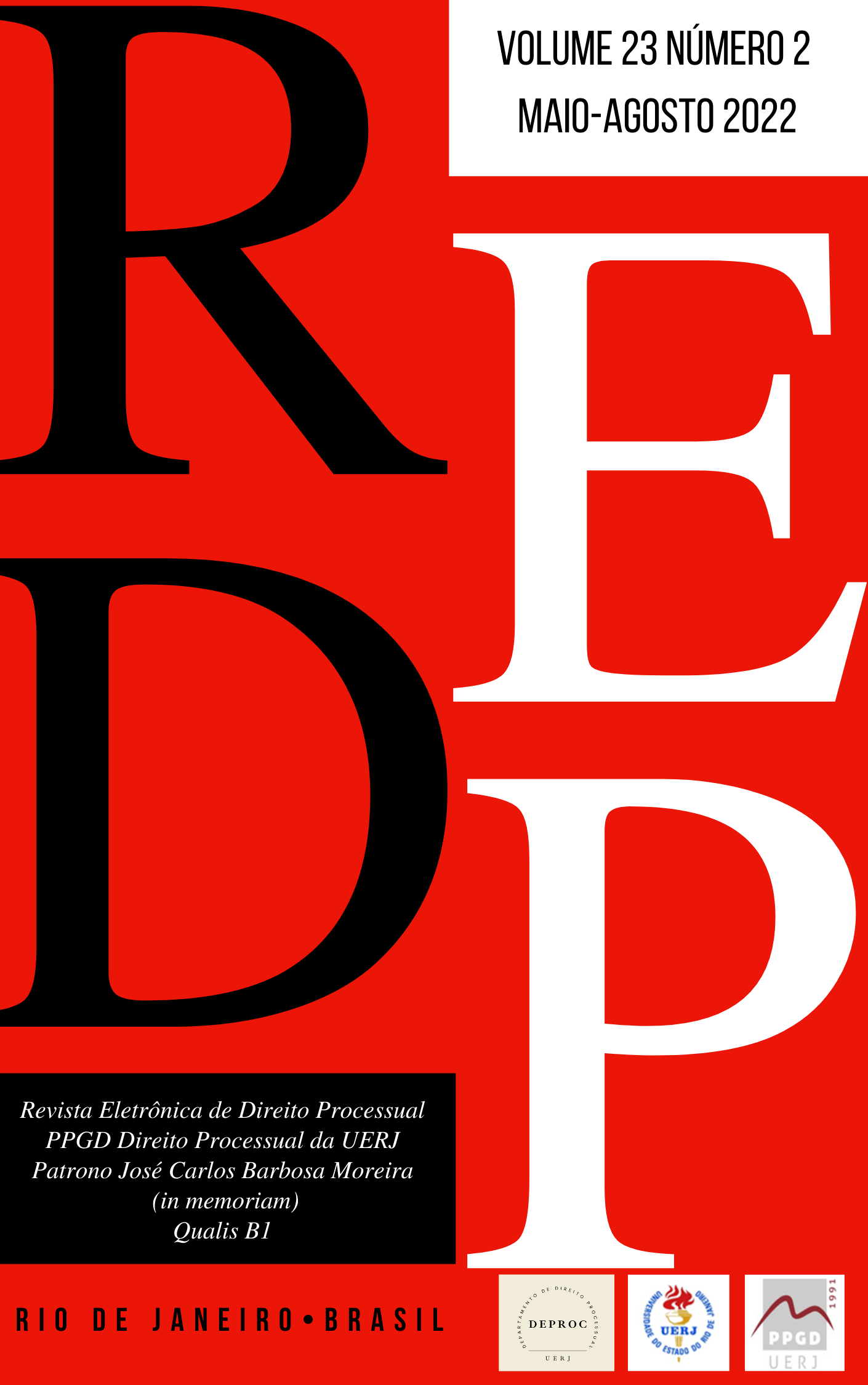ITALY: NO COUNTRY FOR ARBITRATORS?
DOI:
https://doi.org/10.12957/redp.2022.67858Keywords:
Arbitration, institutional arbitration, Code of Civil Procedure, simplified arbitration, duty of disclosure, interim measuresAbstract
This essay offers a few remarks on arbitration in Italy where arbitration is still a niche alternative to traditional litigation before the courts. The initiatives taken by arbitral institutions in the face of the challenges to the proper functioning of the courts brought about by the Covid-19 pandemic have kindled new interest in arbitration, and further reforms of the Code of Civil Procedure (expected by the end of 2022) could increase the appeal of arbitration in Italy. The research methodology applied to this essay is the traditional doctrinal methodology aimed at identifying the relevant legal rules, discussing their meanings and the principles supporting them, without overlooking their ambiguities and flaws. Special attention is paid to a few new trends emerged during the Covid-19 pandemic, as well as to a set of forthcoming reforms that should improve the quality of Italian civil justice.In conclusion, some proposals are presented to make arbitration more attractive in Italy. Firstly, the time has come to get rid of the distinction that is only known in Italy and that causes a lot of confusion, between true arbitration (arbitrato rituale), governed by the Code of Civil Procedure, and so-called "free arbitration" (arbitrato irrituale). Then, it is suggested the adoption of a fast-track arbitration, especially for the resolution of disputes in which the value at stake is modest and the legal issues in dispute are not highly complex.
Downloads
Published
How to Cite
Issue
Section
License
Todos os artigos publicados na Revista Eletrônica de Direito Processual (REDP) (Departamento de Direito Processual, Universidade do Estado do Rio de Janeiro, Brasil) são licenciados por meio de uma Licença Creative Commons - Atribuição 4.0 Internacional (CC BY 4.0).
Os autores retêm os direitos autorais de seu artigo e concordam em licenciar seu trabalho com a licença CC BY 4.0, aceitando assim os termos e condições específicos desta licença disponíveis no seguinte website: https://creativecommons.org/licenses/by/4.0/legalcode.
- Os autores concedem à REDP o direito de primeira publicação, de se identificar como publicadora original do trabalho e concedem à revista uma licença de direitos não exclusivos para utilizar o trabalho das seguintes formas: Reproduzir, vender e distribuir cópias eletrônicas ou impressas do manuscrito como um todo, de partes específicas do manuscrito e de suas traduções para qualquer idioma;
- O uso do artigo por terceiros é livre, contanto que a integridade da publicação seja mantida e seus autores originais, periódico de primeira publicação e detalhes de citação sejam identificados.
Dentro dos termos da licença, os autores podem entrar em acordos contratuais adicionais separados para a distribuição não exclusiva da versão publicada do trabalho na revista.
Copyright and Licensing
All articles published in the Procedural Law Electronic Review (REDP) (Department of Procedural Law, State University of Rio de Janeiro, Brazil) are licensed under a Creative Commons License - Attribution 4.0 International (CC BY 4.0).
- Authors retain copyright to their article and agree to license their work under the CC BY 4.0 license, thereby accepting the specific terms and conditions of this license available at the following website: https://creativecommons.org/licenses/by/4.0/ legal code.
- Authors grant REDP the right of first publication, to identify itself as the original publisher of the work, and grant the journal a non-exclusive license to use the work in the following ways: Reproduce, sell and distribute electronic or printed copies of the manuscript as a whole, of specific parts of the manuscript and its translations into any language;
- Use of the article by third parties is free, as long as the integrity of the publication is maintained and its original authors, first publication journal, and citation details are identified.
Within the terms of the license, authors may enter into separate additional contractual agreements for the non-exclusive distribution of the published version of the work in the journal.





